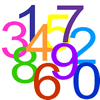We sometimes have unsolved problems which require solutions. If there are any below, do consider having a go at them, and send us your solutions.
You may be interested in the article we have written, which explains what we are looking for when we decide which solutions to publish.

Place value: the ten-ness of ten

Rich mathematics

Recent solutions
How can I support the development of early number sense and place value?
This article for primary teachers expands on the key ideas which underpin early number sense and place value, and suggests activities to support learners as they get to grips with these ideas.
Dot card games
The importance of shape and space in the early years
Models in mind
Pattern and structure
Maths at home

Related teacher playing with shape
Using dice games in the classroom

Maths at home
Welcoming your new class

Working with a grown-up?
Geometric thinking - teacher articles
Getting the balance right
Encouraging primary children to work systematically
ACME report: developing able young mathematicians
Lynne McClure gives an overview of the ACME report 'Raising the bar: developing able young mathematicians', published in December 2012.

Primary children's mathematical recording


Maths at home - summer challenges 2024

A good foundation for number learning for five year olds?

The value of two
Developing number through tidying up
Mathematical problem solving in the early years: developing opportunities, strategies and confidence
In this article for Early Years practitioners, Dr Sue Gifford outlines ways to develop children's problem-solving strategies and confidence in problem solving.
Young children's mathematical recording


Curriculum

TSA NRICH Day October 31st 2018





Features
Early number sense
Subitising
In this article for EY practitioners, Dr Sue Gifford outlines what we mean by subitising and how we can teach it.

Tasks for an adult and child

Full book list
Red or black spinner
Seesaw shenanigans
A group of animals has made a seesaw in the woods. How can you make the seesaw balance?

Full list of books


Number books

Geometry books

Measures books


Being playful, becoming engaged

Interactive tasks and games

Being collaborative

Puzzling with paper

Number Stage 1
Developing group-working skills
Measurement
Your solutions
More playing with 2D shape lower primary
2010: a year of investigations
From objects and images to mathematical ideas
Calendar activities
I'm stuck!
Dice, routes and pathways
Flexibility in geometry



Maths at home


Being resilient
Learning from other people's starting points

Puzzling with paper
Statistics
Reasoning: the journey from novice to expert ( selection of tasks )

Developing group-working skills related content
Shape, position and movement (geometry)

Maths trails - encouraging purposeful outdoor learning
Children's mathematical graphics: understanding the key concept
Developing good team-working skills in primary schools
Path of discovery series 3: I do and I understand
Marion Bond recommends that children should be allowed to use 'apparatus', so that they can physically handle the numbers involved in their calculations, for longer, or across a wider ability band, than is currently the norm.
Lucky numbers
What does it say to you?




Shape your proof

